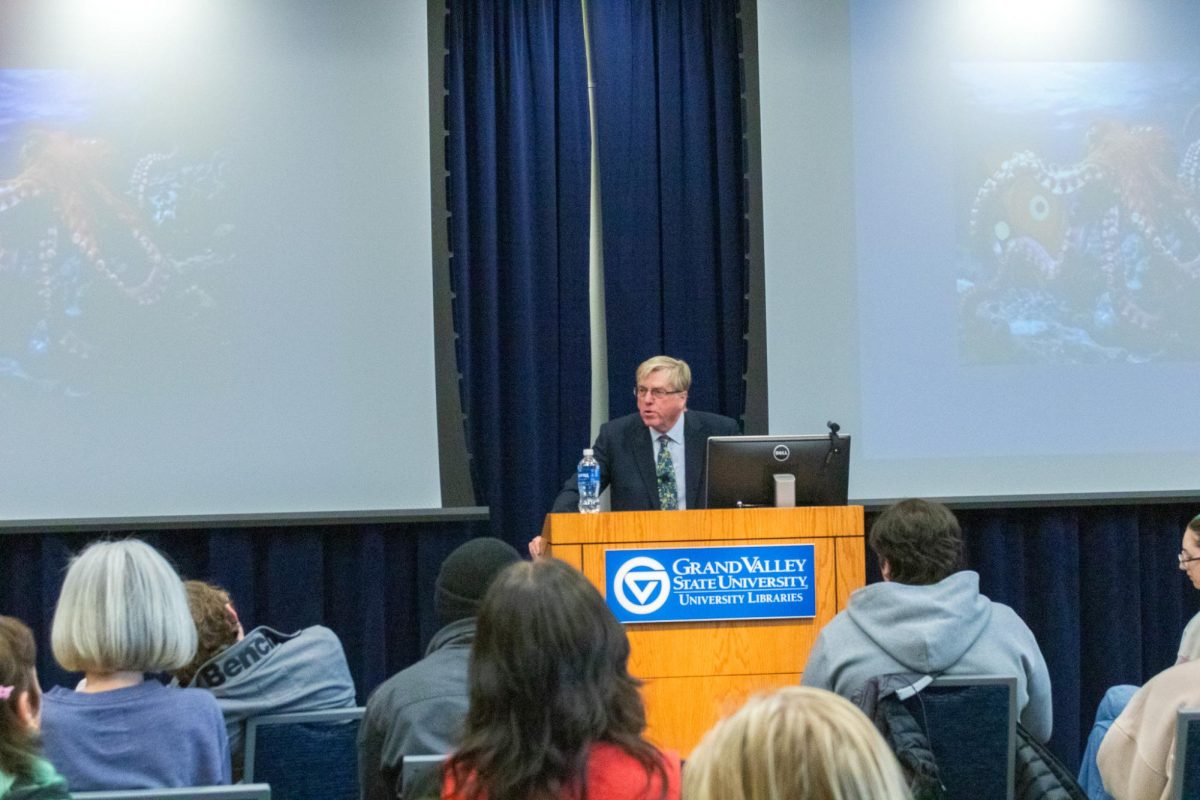All-inclusive?
Jul 2, 2013
In its Inclusion and Implementation Plan released earlier this summer, Grand Valley State University boasted large forward strides in welcoming diversity.
And it should. After all, it earned the Diversity Award from Minority Access, Inc. with initiatives like the cancellation of classes on Martin Luther King, Jr. Day, completion of minority outreach and recruitment programs, and availability of scholarships for minority students.
Its efforts to encourage acceptance and inclusion of the LGBT community also make its high rating on the Campus Pride’s LGBT Friendly Campus Climate Index well earned.
Similarly, GVSU’s vegetarian community is well taken care of with initiatives like Meatless Mondays.
But while the vegetarian, LGBT and racial minority students get to appreciate the university’s improvements, some groups—like the religious—seem to have been overlooked.
The only accomplishment in that regard was the posting of an interfaith calendar online.
Despite what some might assume, the lack of initiatives doesn’t mean that there’s nothing left to accomplish. Complaints have been waged; they just haven’t been addressed.
As Muslim track runner Mohamed Mohamed said in the front-page Lanthorn article titled “A holy struggle,” the university is generally good about accommodating people with religious obligations, but as campus clears with the setting sun, so does the support, and that’s not necessarily convenient to Mohamed.
As an observer of the Islamic month of Ramadan, he is required to abstain from food and drink while the sun is still visible, thus the long summer days leave him about seven hours during the night to replenish his body’s store of nutrients. Unfortunately, the dining halls on GVSU’s main campus close early in the summer, with Papa John’s as the only available option after 9 p.m. Even then, Mohamed has a one-hour window to indulge before the ovens are turned off.
Mohamed and his fellow Muslims at GVSU must then seek food elsewhere without meal plans and without on-campus convenience.
Similarly, in the article titled “Journeys of faith and intellect,” Jewish professor Sheldon Kopperl acknowledged a comparable university oversight when it comes to his religious observances.
“The only way (public teaching) has affected my faith is the fact that the public university must be more aware of Jewish holidays in its planning of major events,” Kopperl said. “Clearly a major event would never be scheduled for Easter or Christmas—although occasionally something sneaks in on Good Friday. Similarly major events on Rosh Hashanah and Yom Kippur should be avoided, as well.”
Kopperl said this negligence to acknowledge religious holidays has “incensed” some in the Jewish community at GVSU.
But while people like Mohamed and Kopperl recognize these significant ways in which the university could become more inclusive and accepting, the university appears not to notice.
GVSU might measure its inclusion efforts and chalk them up as successes, but if the religious communities feel inhibited from practicing their faith to the fullest while on campus, it’s a clear indication that there’s work to be done.
So, Grand Valley, look out for your Islamic community like you did for your vegetarians. Pay respect to Rosh Hashanah like you do to Martin Luther King, Jr. Day.
Keep an eye open for the struggles of your religious communities, and then we can talk inclusion.






















